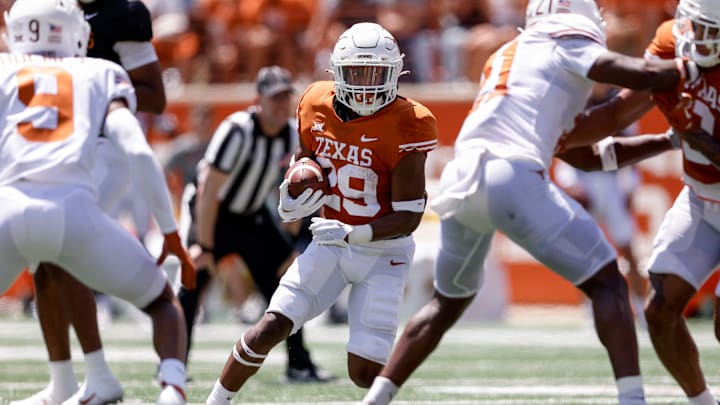Spring games have long been a staple of college football, giving fans an early look at their favorite teams while allowing players to showcase their development in a competitive environment.
However, this offseason, programs have started moving away from this tradition, with multiple teams, including Texas, USC, and Nebraska, reportedly canceling their spring games altogether. While coaches may have valid reasons for making this decision, it ultimately hurts the fans—continuing a concerning trend where college football is becoming more about business than the people who love the game.
The Growing Trend of Canceling Spring Games
The latest team to announce they will no longer hold a spring game is the Texas Longhorns. Head coach Steve Sarkisian confirmed that the program is shifting toward a different offseason training model, one that more closely resembles the NFL's organized team activities (OTAs). This means Texas fans will no longer get a spring preview of their team in a game setting. USC and Nebraska have made similar moves, with Nebraska head coach Matt Rhule citing concerns about player tampering through the transfer portal as a reason for reconsidering the value of spring games.
While these decisions may be made with the program's best interests in mind, it’s hard to ignore the growing disconnect between teams and their fanbases. Programs are increasingly prioritizing roster management and player protection over maintaining the traditions that have helped make college football the cultural force it is today.
A Blow to the Fans
Spring games serve multiple purposes, but their biggest benefit is that they provide fans—especially those who may not be able to afford regular-season tickets—a chance to experience college football in a live setting. Many spring games are free or low-cost events, offering families an opportunity to enjoy a day inside the stadium without the financial burden of a regular-season game. They also bring alumni and local communities together, strengthening the bond between the team and its supporters.
By eliminating spring games, programs are cutting off a key opportunity for fans to engage with the team. It’s another example of how modern college football is becoming increasingly exclusive, whether through skyrocketing ticket prices, conference realignment that disregards traditional rivalries, or now, the loss of spring games. If this trend continues, the connection between fans and their teams will only weaken further.
The Transfer Portal and NIL Impact
The rise of the transfer portal and Name, Image, and Likeness (NIL) deals has undoubtedly changed the landscape of college football. Coaches fear that standout players in spring games could become targets for poaching, with rival programs or boosters using NIL opportunities to lure them away. This has led some coaches to believe that keeping spring performances private is the best way to retain talent.
While these concerns are understandable, canceling spring games is not the right solution. Programs should be addressing tampering head-on rather than removing one of the few remaining traditions that fans still get to enjoy. The transfer portal and NIL are here to stay, and adapting to this new era shouldn't come at the expense of fan engagement.
A Bigger Issue in College Football
Canceling spring games is just one example of a broader shift in college football, where the interests of fans seem to be taking a backseat. Whether it's conference realignment forcing longtime rivals to stop playing each other, games moving to exclusive streaming platforms, or changes to traditional aspects of the sport, the focus has increasingly shifted toward maximizing revenue rather than maintaining what made college football special in the first place.
The passion of the fans is what fuels college football. If programs continue to take away opportunities for fan engagement, whether through canceled spring games or other changes, they risk damaging the foundation of the sport.
